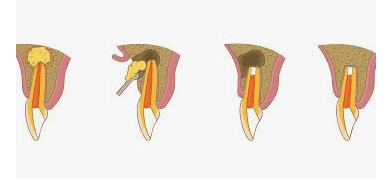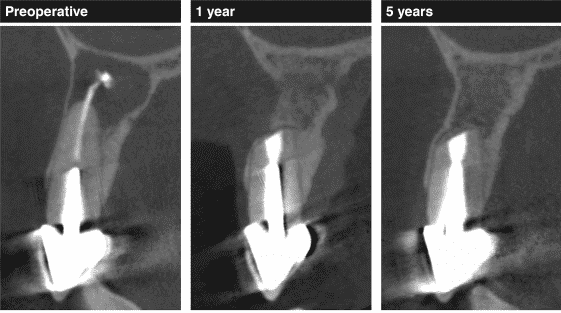What is Root End Surgery?
Root end surgery is most commonly called an apicoectomy. This procedure involves removing the very tip of the root of one or more of your teeth. The surgery can be done in-office and prevents the need for the tooth to be extracted. Root end surgery is typically needed if a root canal has failed or there is a severe infection or abscess at the apex (end) of the tooth’s roots.

Why is Root End Surgery needed?
One of the most common reasons for needing an apicoectomy is because a root canal has failed. During a root canal, the pulp of a tooth is removed and the canals filled with a special medicated material. If you’re still experiencing pain and sensitivity after a root canal or have an infection at the base of the roots, we may suggest an apicoectomy. The procedure can help to prevent full removal of the tooth through extraction.
Who is a candidate for Root End Surgery?
The best way for us to tell if root end surgery is needed is with an x-ray. The x-ray allows us to identify damage to the apex of the tooth as well as if an infection is present. In many cases, patients who have an infection or abscess will experience pain and swelling around the tooth and surrounding gums. If you need root end surgery, it is important to consider having it done as soon as possible to prevent further damage to the tooth.


What happens during Root End Surgery?
We administer a local anesthetic to numb the gums around the tooth. We then make a small incision in the gum area by the base of the tooth. A small portion of the root’s tip is removed surgically. We then remove any diseased or infected tissue and bone in this area. The end of the root is filled with a filling to seal and close it off. Sutures are used to close the gums before you’re able to leave the office. Some pain and swelling are common following the surgery, but once recovered, you’ll find that you experience no pain and discomfort thanks to having the root end surgery done.
We typically follow up surgical treatments with CBCT imaging at certain points to make sure everything is healing correctly.
If you would like to learn more about root end surgery, call our office today so that we can get you in for a convenient consultation appointment.
